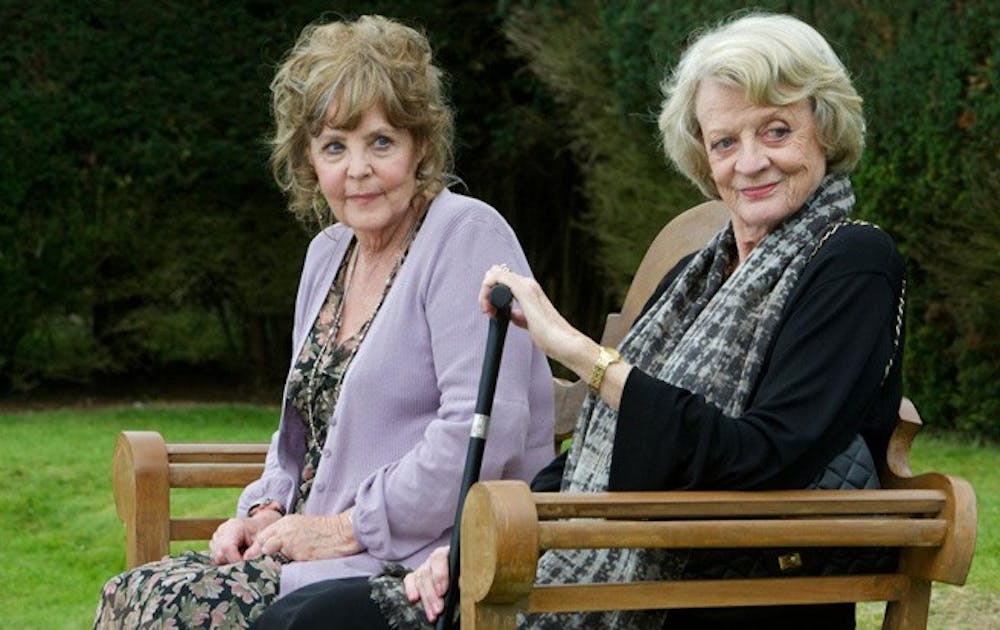“Thanks for balancing the age ratio,” whispered a bald, elderly man as I walked into the Chelsea Theater to see a Sunday matinee of Quartet. “You’re the only non-gray in here.”
I laughed and glanced around the theater. Indeed, it was a homogeneous audience, characterized by spectacle-framed faces, fluffy grey hair and shawl-covered shoulders. Evidently, I was not part of Quartet’s target audience. I was nonetheless eager to see Dustin Hoffman’s directing debut, starring Maggie Smith, Michael Gambon, Tom Courtenay, Billy Connolly and Pauline Collins as old opera stars who are reunited at Beechman House, home for retired musicians. Brimming with some of Britain’s finest musical talent, Beechman House becomes a hotbed of drama when prima donna Jean Horton (Smith) moves in for her retirement and longtime friends, flames and rivals mobilize to prepare for Beechman House’s annual gala.
From the residents’ tongue-in-cheek rendition of La Traviata in the opening scene, I eased into Quartet’s charming, albeit overly sentimental atmosphere. Between rehearsals for the upcoming gala, the elderly residents reminisce about their glory days, crack jokes about becoming “old farts” and gossip about new arrivals over afternoon tea on the terrace or play croquet on the estate’s well-manicured grounds. The egotistical director, Cedric (Gambon), conducts rehearsals wearing patterned robes and embroidered caps. (It’s “Cee-dric,” not “Ced-ric.”) And Wilf (Connolly,) the incorrigible old flirt, incessantly makes passes at the resident doctor and a young, doting French maid. He also frequently pees in the bushes because, well, nature calls all the time. At Beechman House, retirement is a lively time indeed, and the egos and rivalries of the opera world are always simmering beneath the surface. Hoffman skillfully presents an eccentric corner of society, compensating for a flat screenplay that lacks compelling plot or character development.
Quartet benefits from overall solid performances by a cast of great actors, but some roles are limiting, and certain performances verge on caricature. Connolly’s performance as Wilf is amusing but heavy-handed. His jokes about the effect of old age on his sex drive eventually get stale, and he urinates outside a few times too many. Likewise, Gambon has some memorable moments as Cedric, but never fully succeeds in pushing beyond the boundaries of the “imperious director” stock character. Smith and Collins are, nevertheless, delightful to watch. Smith’s prima donna attitude is sharp and convincing—she orders around the Beechman House staff with the perfect blend of withering disdain for their incompetency and naïveté of the fact that she is no longer a star performer. Collins brings Cissy’s kindheartedness, constant chattering and endearing forgetfulness to life, and often steals the scene from Connolly’s incessant, plodding flirtation.
The showcase of musical talent in Quartet works to the film’s advantage. The cast is sprinkled with former opera stars and professional musicians, and the rehearsal inter-scenes help to cushion an otherwise inconsequential plot. All the characters (and their antics) are vivid, at least, and that’s part of why Quartet is fun to watch. Even in old age, we never really cease to be young.
Get The Chronicle straight to your inbox
Signup for our weekly newsletter. Cancel at any time.

